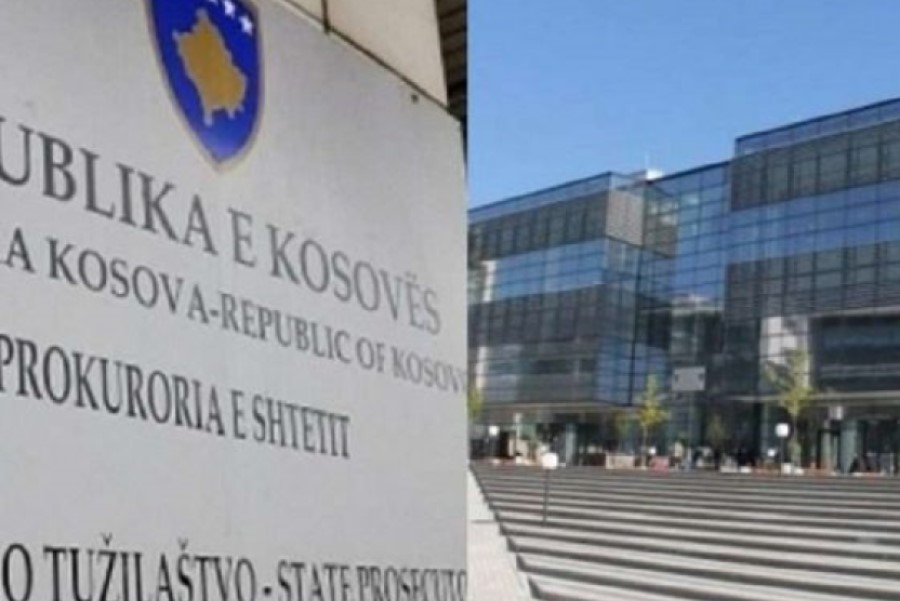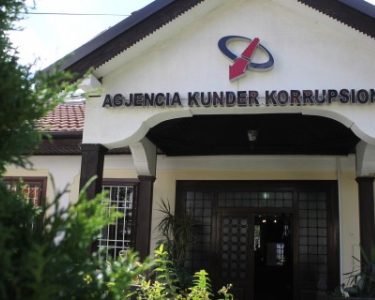Over 60 charges against public officials have been submitted to the State Prosecutor’s Office this year by the Agency for Prevention of Corruption. These cases are mainly related to the inaccuracies identified during the verification of the wealth declarations submitted last year. Although, it is estimated that the courts are treating the cases received by the Prosecutor’s Office with more priority, according to the monitors of the work of the justice institutions, there is still a lot to be done.
The director of the Agency for the Prevention of Corruption (APK), Yll Buleshkaj, announced that after the end of the deadline for declaring assets, which was open until the end of March, there are about 4,700 public officials who have declared their assets for in 2022, while 20 public officials have not used this period to fulfill the obligation.
Non-declaration of wealth by state officials in Kosovo, according to the Criminal Code, is punishable by a fine or imprisonment of up to three years, but so far in no case has there been a prison sentence. The fines are 30 percent of the monthly salary up to 500 euros.
Buleshkaj says that so far they have not imposed any fine, as they are doing the final verification of public officials who have not declared their wealth.
Buleshkaj: 4,700 public officials have declared their wealth for 2022
“About 4,700 public officials, who were obliged to regularly declare their wealth, declared it last year. In addition to them, there are about 20 who did not declare it in time, but we are doing the final verification, if they did it in a form other than the electronic one, which was the main way this time… Until now now we have not imposed any fine. We are in the process of verification. I believe that for those who have not declared their wealth any form, we will issue the first fines, beginning from next week. The fines are not small, they are 30 percent of the monthly salary up to 500 euros”, says Buleshkaj while adding that the electronic system has facilitated the process.
After verifying the wealth finding that there is inconsistency with what was declared and the findings, Buleshkaj says that for the period from January 1 to March 31 of this year, they submitted a significant number of cases to the Prosecutor’s Office.
Buleshkaj: This year we submitted 60 cases to the Prosecutor’s Office
“This year, we submitted 60 cases to the Prosecutor’s Office, which is not a very large number, but it is important. These cases were mainly the result of the property verification that took place at the end of last year, and after discrepancies were found, there was a process of investigating these cases, and all those that could not be closed due to of the big differences in the declaration of wealth, we forwarded them to the State Prosecutor’s Office for investigation”, says Buleshkaj.
Despite the small number of state officials who do not declare their wealth, the exercise of duties by the APK and the filing of indictments, the small sentences and mostly conditional ones by the courts, according to the monitors of the work of the justice institutions, are negatively affecting the results.
The executive director of the Kosovo Institute for Justice, Ehat Miftaraj, says that the fines without legal consequences are not achieving the effect, for which the Law on the declaration of wealth approved.
Miftaraj: Penalties without legal consequences are not reaching the effect of the law
“With the very fact that we have a large number of ministers who have not declared their wealth, this somehow shows how little respect this government has for the rule of law, for fulfilling the obligations arising from the law… It must change the practice, change the standard where the ministers and deputy ministers have no respect at all for the declaration of wealth, and in a way they ignore it and do not declare the wealth. On the other hand, another criticism should be addressed at the judges themselves, who seem to be declaring invalid this whole law or the provisions related to the declaration of wealth through the penalties with fines. When it is known that fines have no legal consequences, in a way they are sabotaging the policies, which are approved by the Assembly, they are sabotaging the obligations that arise to maintain the integrity of the public official first, but also of the office they represent. , he says.
Meanwhile, the director of APK, Yll Buleshkaj says that there are also cases that have complained to the court.
Buleshkaj: We have sent two cases to the Court of Appeal
“It is not that we are very happy, but we see progress in dealing with these cases, compared to the last year. This is the first time that we have a ‘feedback’ or information about what is happening with all these criminal charges. We have also started to use the appeal mechanism in the Court of Appeal for charges, which, in our opinion, have been unjustly dismissed. We have at least two cases which we appealed to the Court of Appeal and because they were closed, and in our opinion, they were closed without right”, he adds.
On the other hand, the director of the IKD also criticizes the Prosecutor’s Office, which he says uses double standards.
Miftaraj: The prosecution has double standards
“Based on our monitoring, the Prosecutor’s Office has double standards, where for an identical case, if we are dealing with a state prosecutor who does not declare his wealth properly, he is amnestied and the investigations against him are terminated, while for the police or for other officials we have indictments. So, in this regard, even if you do the system properly, when the same has to be implemented by the police, by the courts, by the prosecution, then those problems and differences are noticed. A double policy is being observed, where in certain cases amnesties are granted, in certain cases the law is applied as it was foreseen”, he says.
For public officials, who have been convicted by a court decision, they are being asked to resign from their respective positions as it is estimated that each violation can damage the public image of the country’s institutions.
Viola Bunjaku from the Fol movement considers that all state officials who have received a final decision from the court about their guilt for the criminal offense of corruption, should resign.
Bunjaku: Public officials who have been convicted by the court for the criminal offense of corruption should resign
“For public officials, who have not yet declared their wealth, I think there are legal provisions of the Law on the declaration of assets, where they are fined with up to 500 euros for those who have not declared their wealth, but when it’s about criminal charges of corruption, which can be raised before the court, I think that those public officials who are sentenced by the court for a criminal offense of corruption, then I think they should resign”, she says.
Despite the challenges, the director of the Agency for the Prevention of Corruption, Yll Buleshkaj says that as an agency they are doing the best possible.
Buleshkaj: There has been a doubling of the Agency’s performance in handling cases
“The agency is doing a good job, I can’t say that we are doing an excellent job, because we don’t have the conditions, human resources, or other technical conditions for an excellent job. But there is progress. If before we did a good job, since last year we have done a very good job. There has been a doubling of the Agency’s performance in handling cases. We as the Agency believe that the delay in dealing with cases is a form of denying the right of that official to have his case dealt with within a certain period”, says Buleshkaj.
The Office of the Chief State Prosecutor informs that they have received a total of 254 cases from the Agency for the Prevention of Corruption.
“Of these, 212 cases were related to the criminal offense of non-reporting or false reporting of wealth, income, gifts, other material benefit or financial obligations, from Article 430 of the Criminal Code of the Republic of Kosovo and 42 cases, information related to this nature. These cases from the Office of the Chief State Prosecutor were processed according to the territorial and subject competence in all competent prosecutions. According to the information provided, 15 indictments have been filed and the others are pending. Meanwhile, in the first 3 months of 2023, a total of 58 cases were received with the PPN-AKK, of which 47 criminal reports and 11 information.”
According to APK, during the past year the courts have handled a total of 38 cases, where for 37 of them received a decisions that they were found guilty.
This feature was produced by the NGO “Center for Innovation and Development” with the financial support of EULEX Kosovo. Its content does not necessarily reflect the views and opinions of EULEX Kosovo




